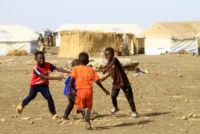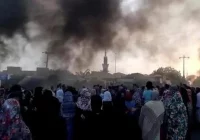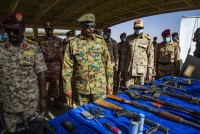
Sudan Is Not a Lost Cause
This week marks exactly one year since Sudan descended into war.
Over the last year, the world’s most influential organizations, leaders, and publications have characterized Sudan’s ongoing war as catastrophic and beyond a point of no return. On paper, these terms seem reasonable in describing the dire circumstances on the ground. More than 15,000 people have been killed in war-related violence, over 8 million people have been displaced, and widespread hunger is increasing.
Though this language is attention-grabbing—and quotable—it has restricted the international community’s response to the conflict. This style of language—which effectively dismisses many conflict zones as lost causes—is a constant in humanitarian crises.… Seguir leyendo »


















